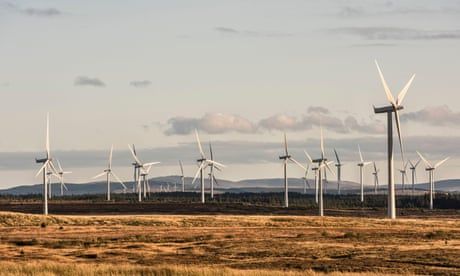
As a new report makes clear, the timetable is dauntingly tight. But the potential rewards on offer are huge
One of Labour’s first acts in government was to lift the de facto ban on new onshore windfarms introduced by the Conservatives in 2016, which closed off one of the key pathways to clean, cheap energy by the 2030s. This week, progress was resumed as plans were outlined for what would be the most productive onshore windfarm in England. According to developers, the Scout Moor scheme in Greater Manchester could meet 10% of the region’s energy needs by the end of the decade.
As a major new report published on Tuesday makes clear, if Labour’s mission of a clean electricity system by 2030 is to be met, an avalanche of such projects will be required. The publicly owned National Energy System Operator (Neso) estimates that a doubling of onshore wind capacity will be necessary, along with a still bigger expansion of offshore wind and a tripling of solar power. When this is all considered alongside the need to transform the country’s power and transmission networks at an unprecedented pace, the daunting scale of the task becomes clear. Crucially, though, Neso’s analysis finds that the 2030 date is achievable if, to put it non-technically, the government, the energy industry and regulators truly go for it.
Do you have an opinion on the issues raised in this article? If you would like to submit a response of up to 300 words by email to be considered for publication in our letters section, please click here.
Continue reading...